Known by many as “torties,” tortoiseshell cats are adored for their unusual personalities and eye-catching multicolored coats. “How long do tortie cats live?” is a common question among cat lovers. The longevity of tortoiseshell cats is usually between 12 and 18 years, which is similar to that of other domestic cats. Some torties can live into their early twenties with the right care. This article explores the variables that affect tortoiseshell cats’ longevity and offers advice on how to prolong the health and lifespan of these colorful pets.
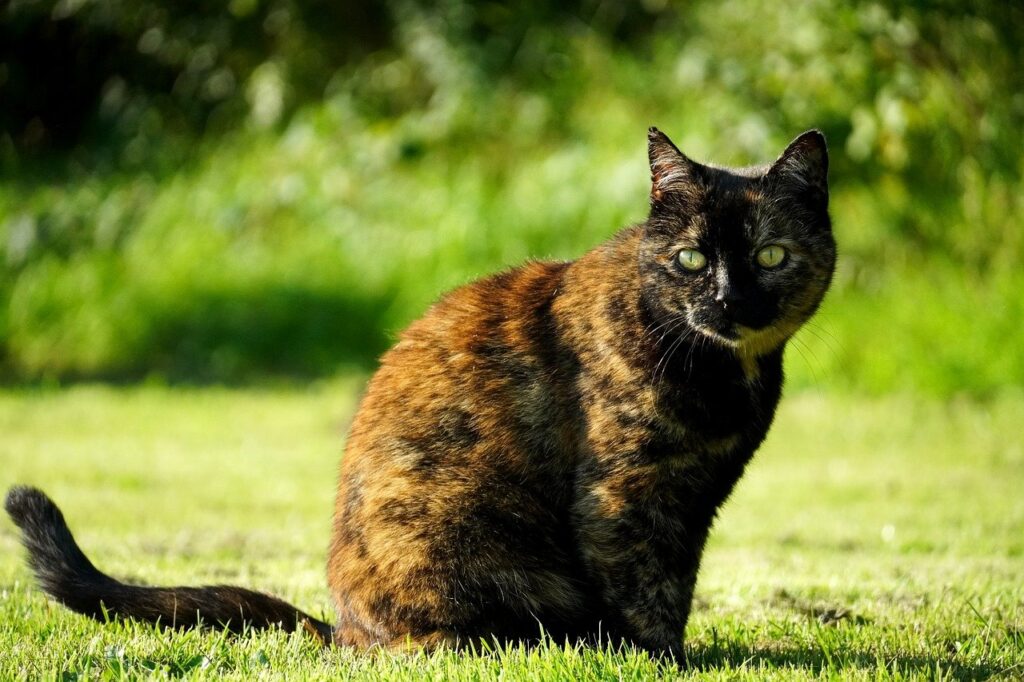
What is a Tortoiseshell Cat?
A tortoiseshell cat, often affectionately called a “tortie,” is defined by its striking coat pattern, which features a mix of black, orange, and sometimes white colors in a mottled or patched arrangement. Unlike breeds such as Siamese or Persian, “tortoiseshell” refers exclusively to this unique color pattern, not to a specific breed.
The distinctive tortoiseshell coloration arises from genetic factors. The pattern is linked to the X chromosome, which carries the genes for both black and orange fur. Since female cats have two X chromosomes, they can display both colors simultaneously, creating the tortoiseshell appearance. Male tortoiseshell cats are rare and usually have an extra X chromosome (XXY), a condition known as Klinefelter syndrome, which also makes them typically sterile. This fascinating genetic mosaic not only makes tortoiseshell cats visually unique but also showcases the intricate interplay of genetics in determining a cat’s coat color.
How Long Do Tortie Cats Live?
Tortoiseshell cats generally have a lifespan similar to other domestic cats, typically ranging from 12 to 18 years. With proper care, which includes a balanced diet, regular veterinary check-ups, and a safe living environment, some tortoiseshell cats can live into their early twenties. Their longevity, like that of any cat, depends on a combination of genetics, healthcare, and lifestyle. Ensuring a tortie receives attentive and comprehensive care can significantly enhance their chances of a long, healthy life.
Factors Influencing the Lifespan of Tortie Cats
Genetics
The breed and genetic predispositions of a tortoiseshell cat significantly influence its lifespan. Certain breeds, such as the Siamese and Burmese, are known for their longevity and may contribute to a longer life if the tortie pattern appears in these breeds. Conversely, breeds with genetic health issues might have shorter lifespans. Understanding the genetic background of your tortie can provide insights into potential health concerns and expected lifespan.
Diet and Nutrition
A balanced diet is crucial for the longevity of tortoiseshell cats. Providing high-quality food that meets their nutritional needs helps prevent obesity, diabetes, and other health issues. Essential dietary factors include appropriate protein levels, vitamins, and minerals. Consulting with a veterinarian to tailor a diet plan for your tortie can significantly contribute to a longer, healthier life.
Healthcare
Regular veterinary check-ups are essential for maintaining your tortoiseshell cat’s health. Routine examinations allow for early detection and treatment of illnesses, which can prolong a cat’s life. Vaccinations protect against infectious diseases, and dental care prevents oral health issues that can lead to more serious conditions. Keeping up with preventive healthcare is a key factor in extending your cat’s lifespan.
Living Environment
The environment in which a tortoiseshell cat lives plays a crucial role in its longevity. Indoor cats generally live longer than outdoor cats due to reduced risks of accidents, predators, and contagious diseases. To create a safe and stimulating indoor environment, provide plenty of toys, climbing structures, and scratching posts. Ensuring a secure and enriching space helps keep your tortie both physically and mentally healthy.
Lifestyle and Activity
Physical and mental stimulation are vital for a tortoiseshell cat’s well-being. Regular playtime with interactive toys, such as feather wands and puzzle feeders, keeps your cat active and engaged. Mental stimulation through activities like training sessions or hide-and-seek games helps prevent boredom and related behavioral issues. A well-stimulated cat is generally healthier and may enjoy a longer lifespan.
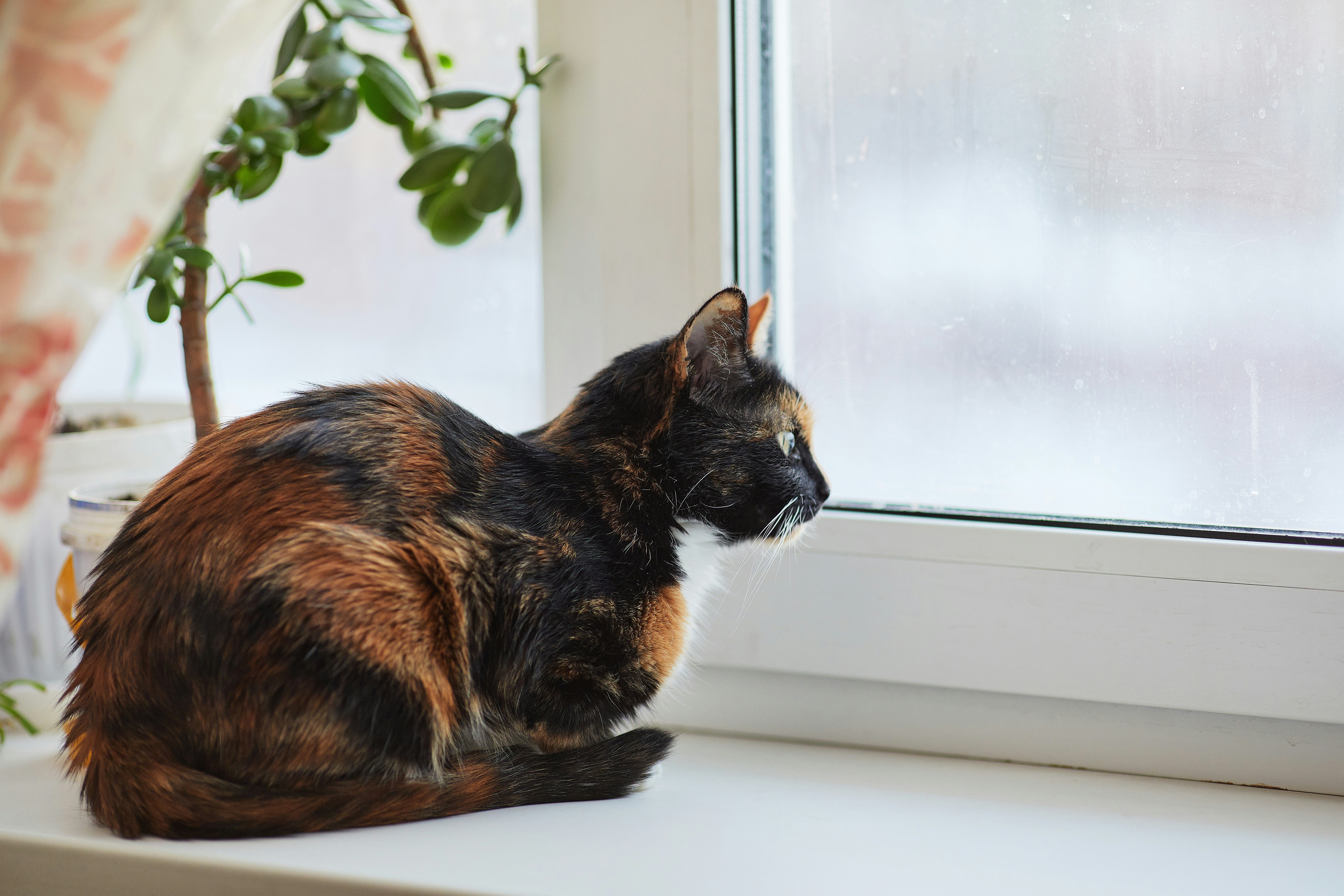
Tips for Prolonging the Life of Your Tortie Cat
Nutrition
To ensure your tortie cat enjoys a long, healthy life, feed them a high-quality diet rich in essential nutrients. Choose cat food that provides balanced levels of protein, fats, and carbohydrates, and consider incorporating wet food to maintain hydration. Avoid overfeeding to prevent obesity, and consult your veterinarian for specific dietary recommendations tailored to your cat’s age, weight, and health status.
Veterinary Care
Regular veterinary check-ups are crucial for your tortie cat’s health. Annual visits allow for early detection and treatment of potential health issues, while vaccinations protect against common diseases. Preventive care, including dental check-ups and flea, tick, and worm treatments, is essential for maintaining your cat’s overall well-being.
Safe Environment
Keeping your tortie cat indoors can significantly increase their lifespan by protecting them from outdoor hazards like traffic, predators, and infectious diseases. Create a stimulating indoor environment with plenty of toys, climbing structures, and scratching posts to keep your cat physically and mentally engaged.
Grooming
Regular grooming is important for your tortie cat’s health and comfort. Brush their coat weekly to reduce shedding and prevent hairballs. Grooming sessions also allow you to check for skin issues, parasites, or abnormalities that may require veterinary attention.
Exercise and Play
Keeping your tortie cat active is vital for their physical health and mental stimulation. Engage them with interactive toys like feather wands, laser pointers, and puzzle feeders. Incorporate daily play sessions to encourage exercise and prevent boredom, which can lead to behavioral problems.
Love and Attention
Building a strong bond with your tortie cat through love and attention is essential for their emotional well-being. Give your cat lots of love and affection during your precious time together. A secure, loving relationship helps reduce stress and contributes to a happier, healthier life for your feline companion.
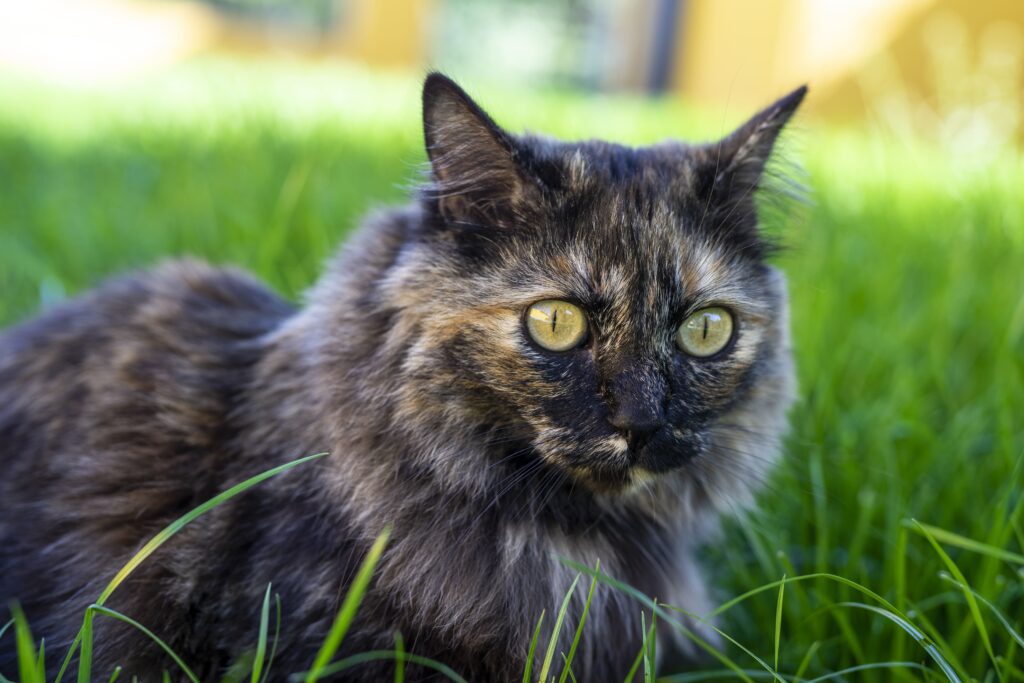
Conclusion on how long do tortie cats live?
Tortoiseshell cats typically live between 12 to 18 years, with some reaching their early twenties with exceptional care. Proper nutrition, regular veterinary visits, a safe indoor environment, grooming, exercise, and plenty of love are crucial for ensuring a long, healthy life for your tortie. By prioritizing these aspects of care, you can significantly enhance your tortie’s lifespan and quality of life. Cherish your unique feline friend, and with dedicated care, you can enjoy many happy, healthy years together.
Read More:
Tortoiseshell Cat Favorite Food

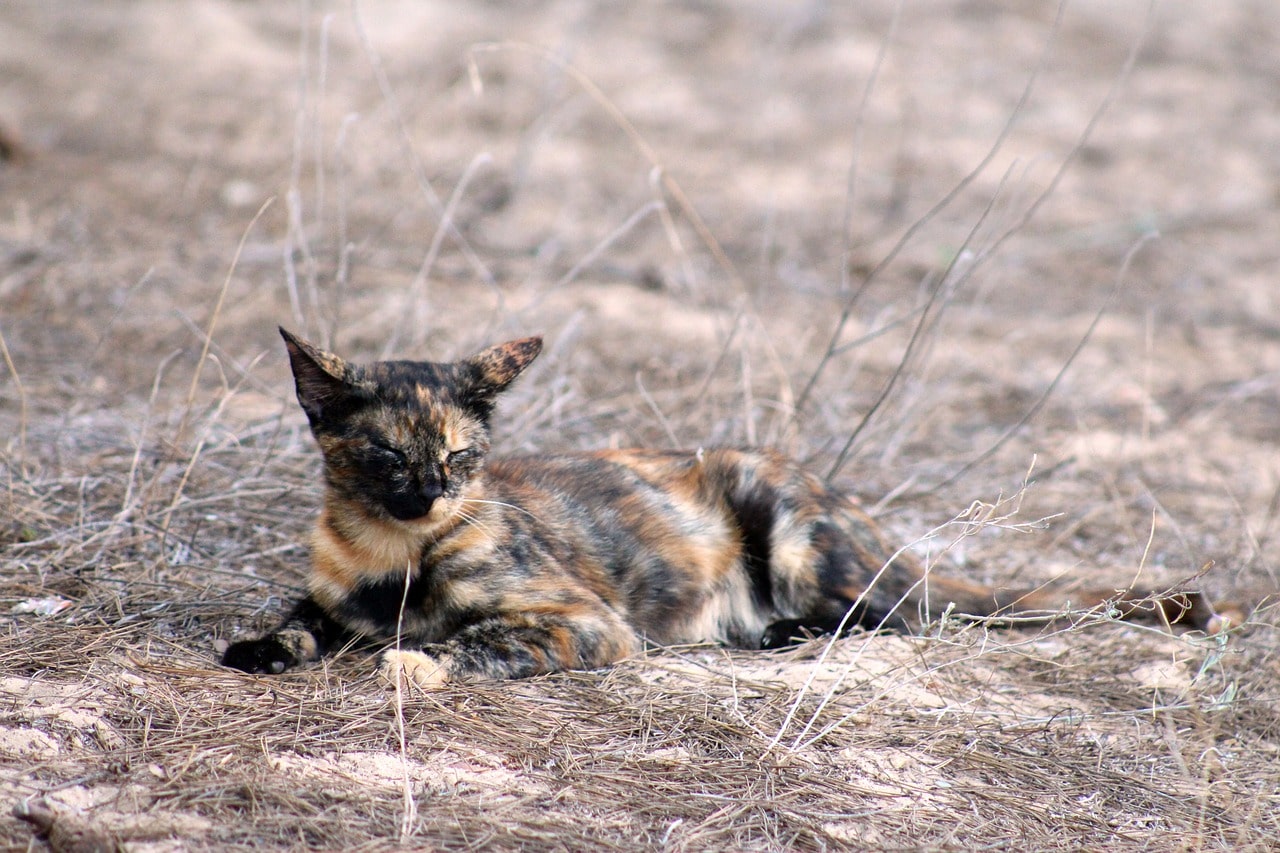
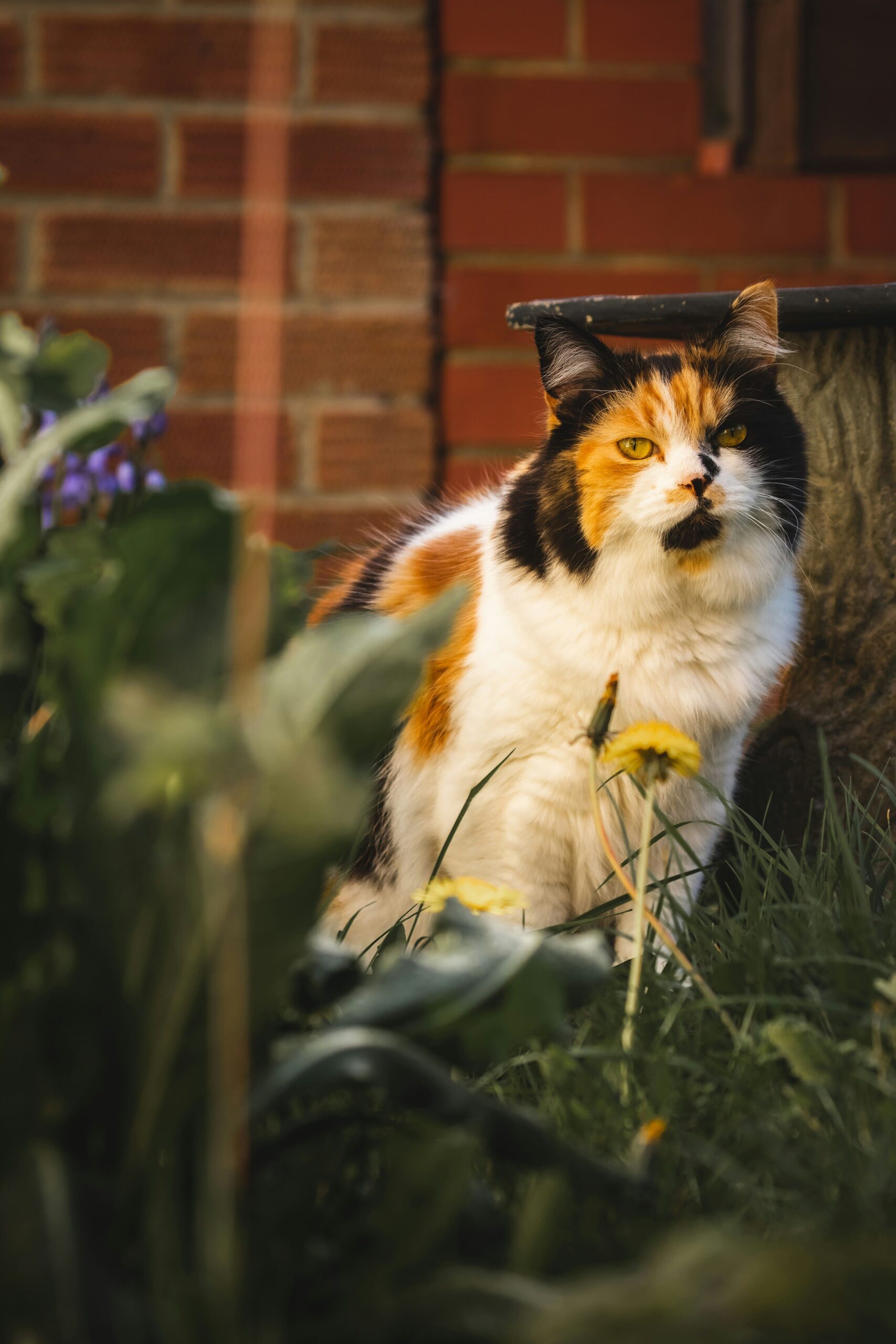
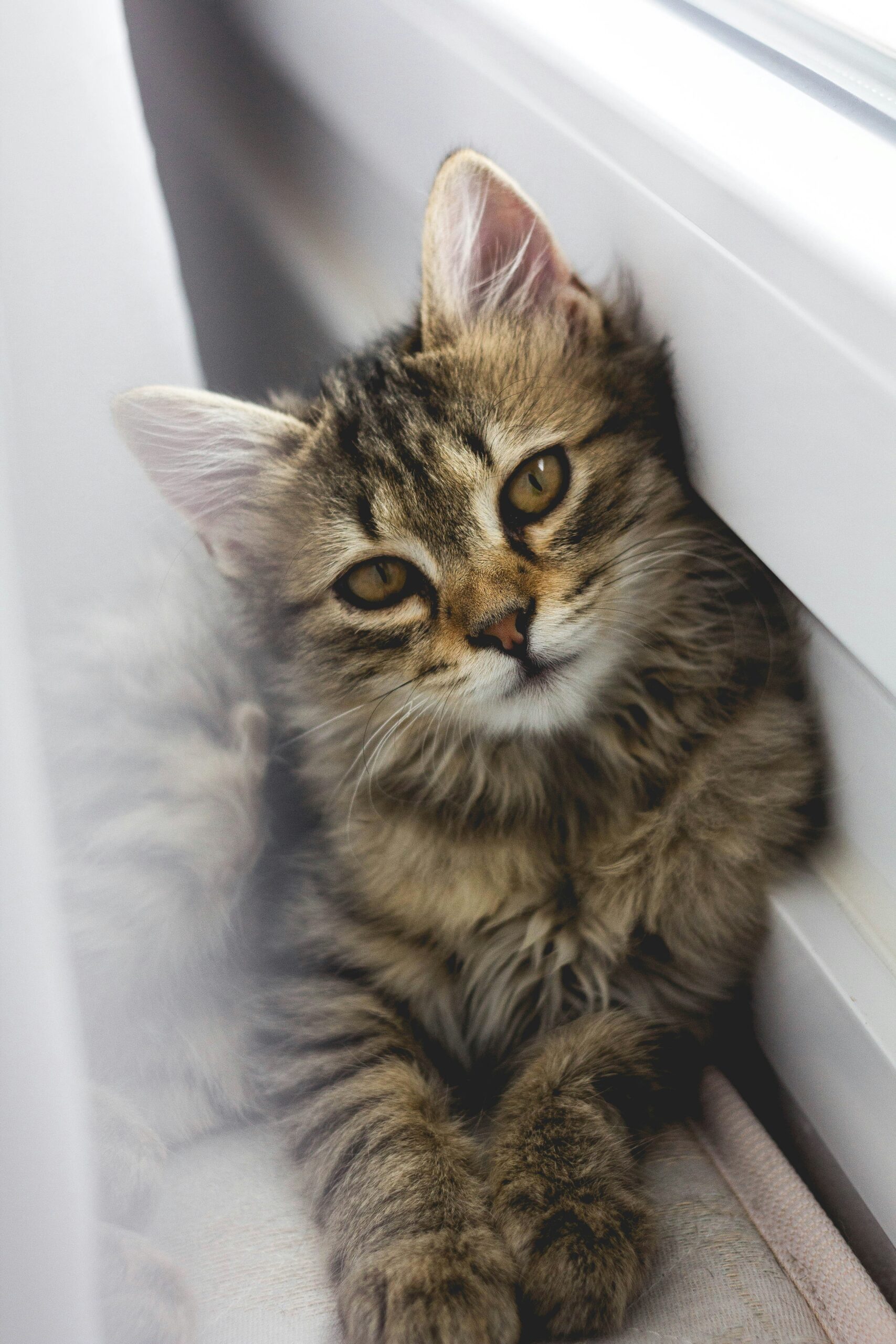
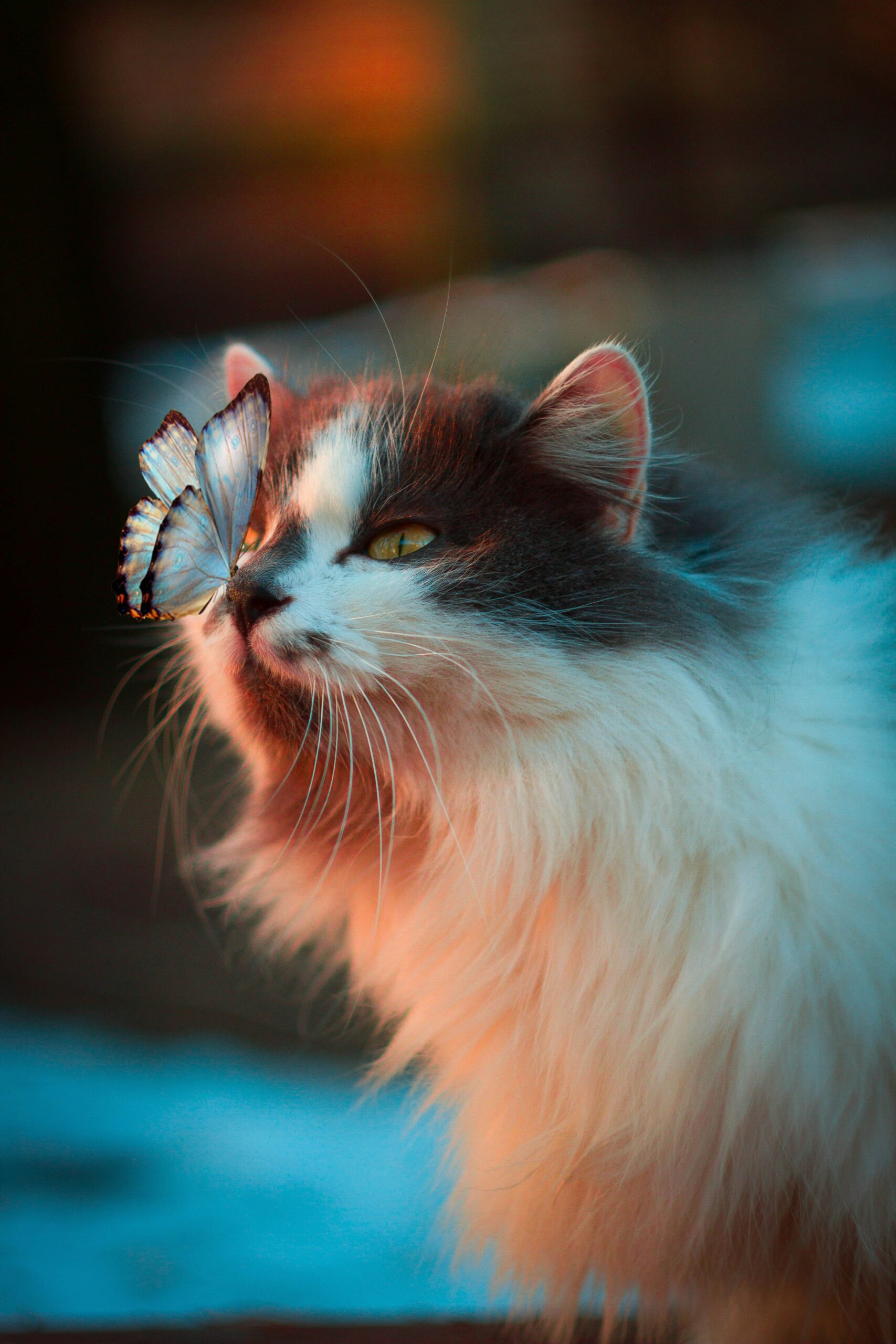
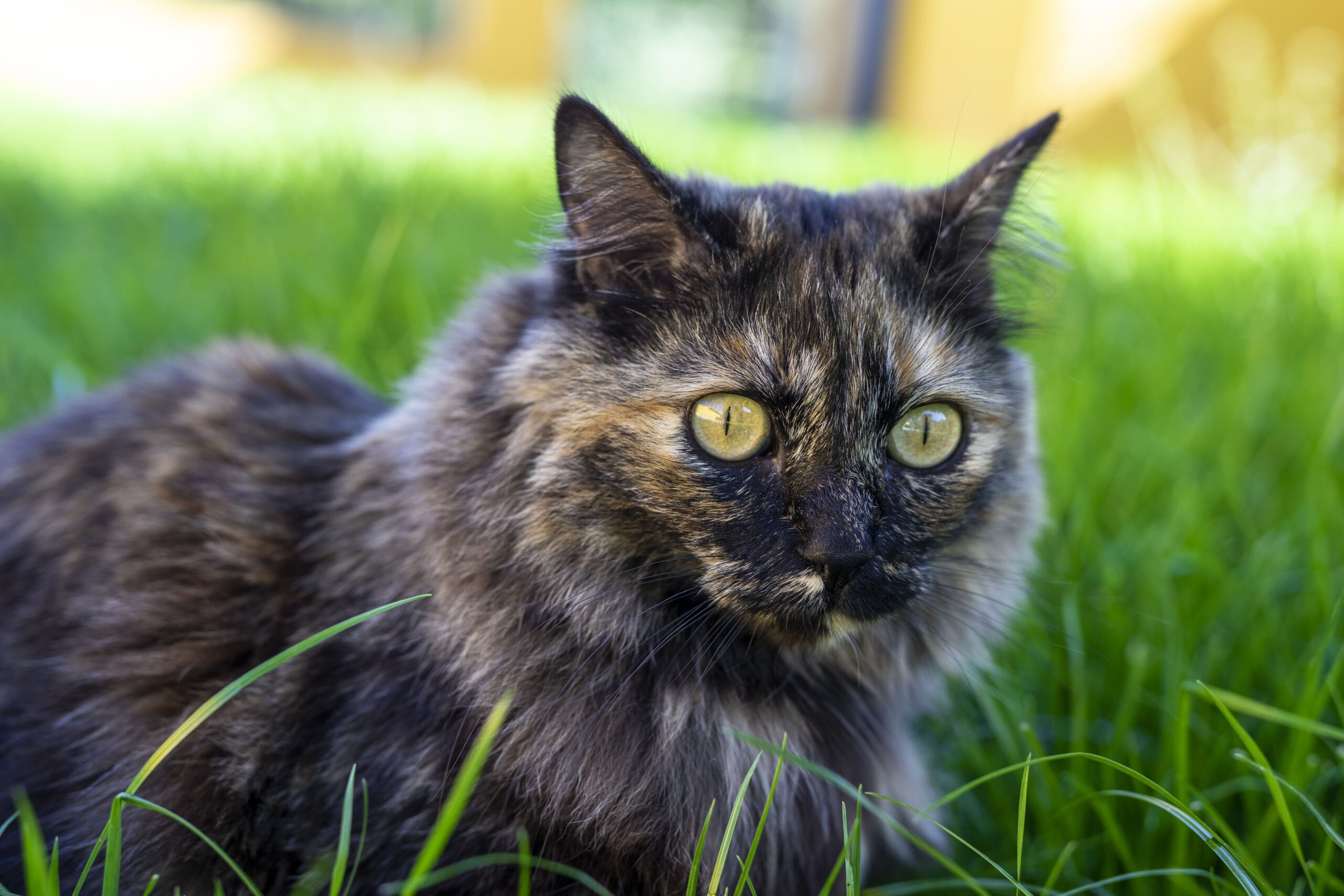

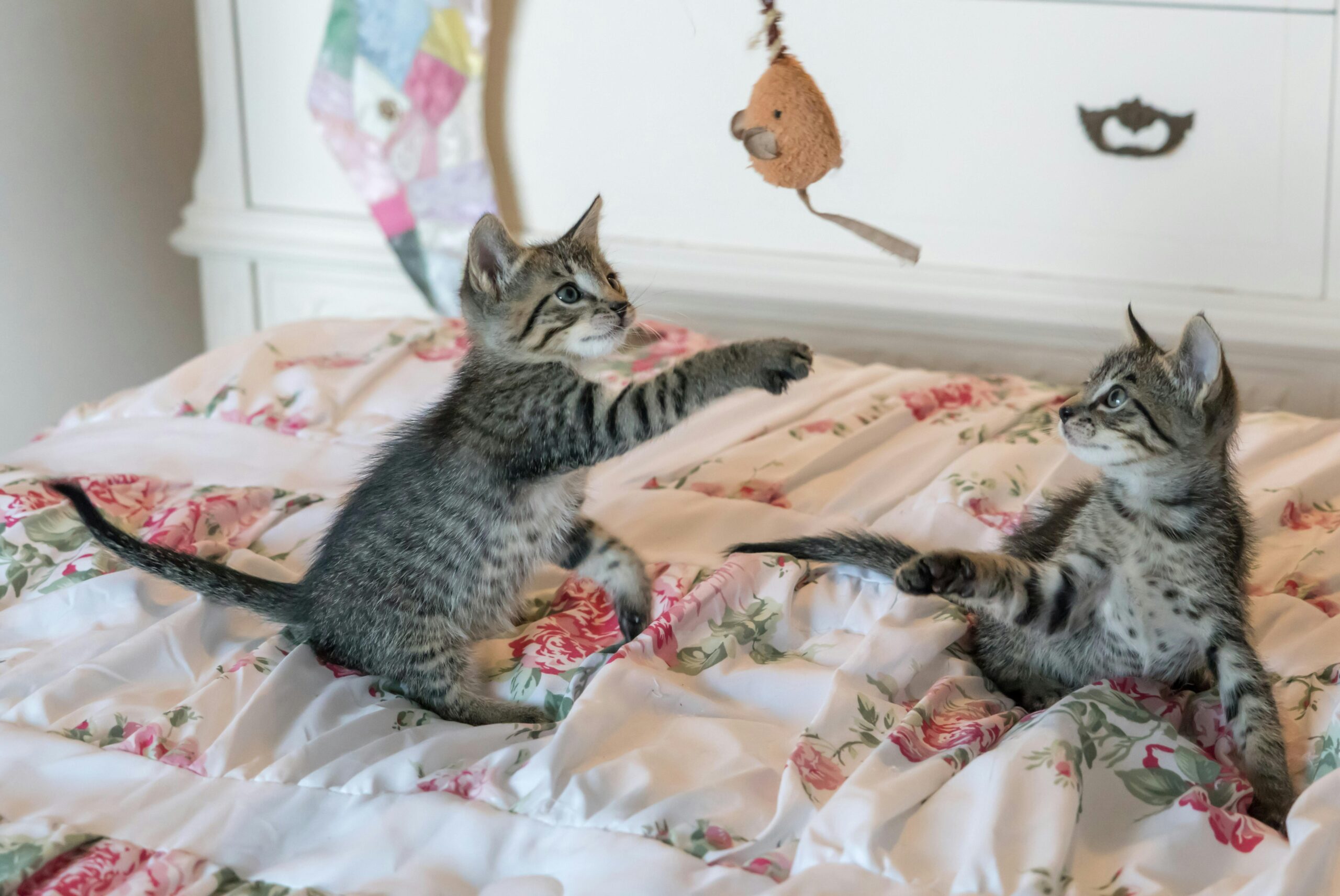
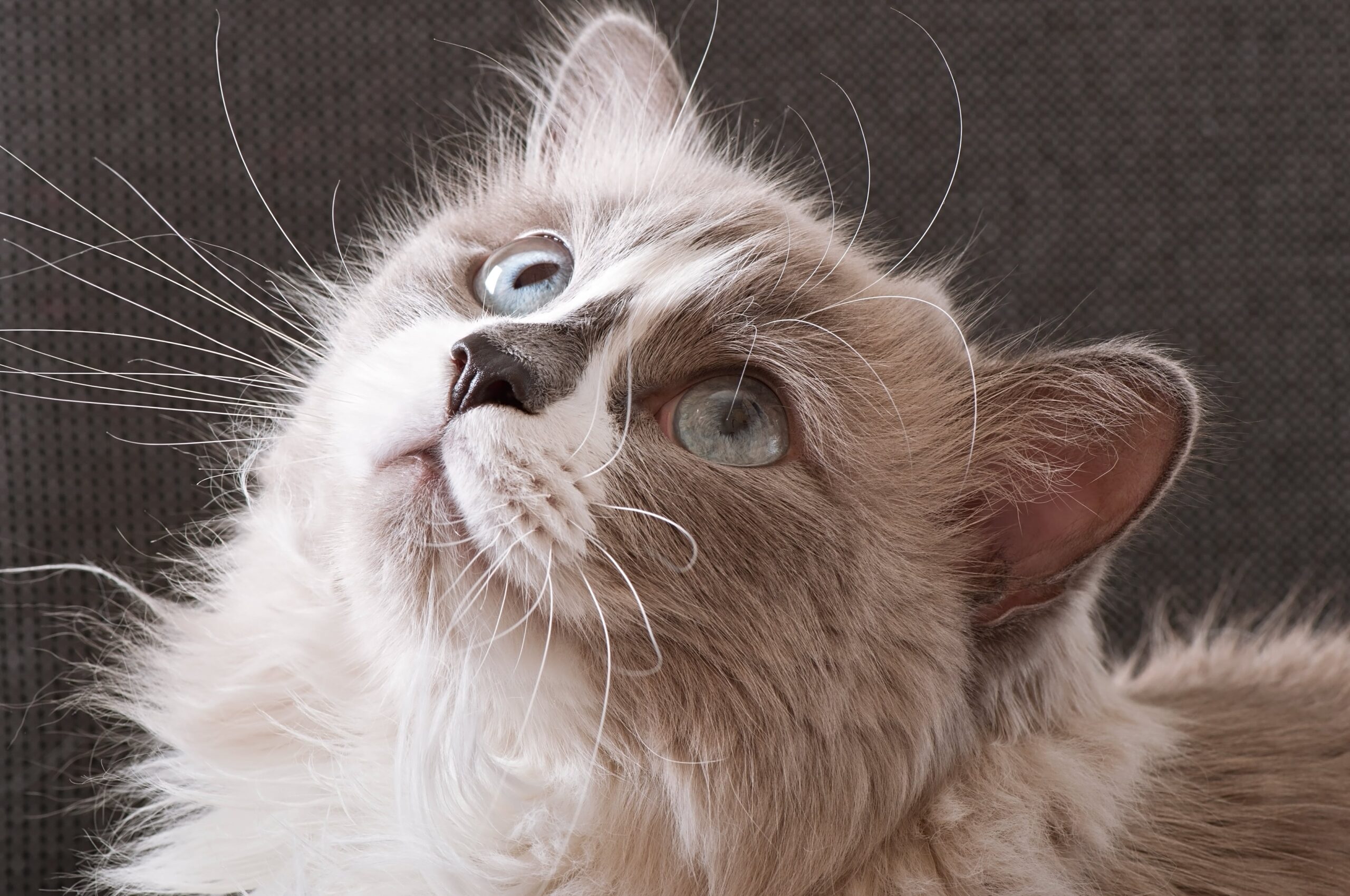


Leave a Reply